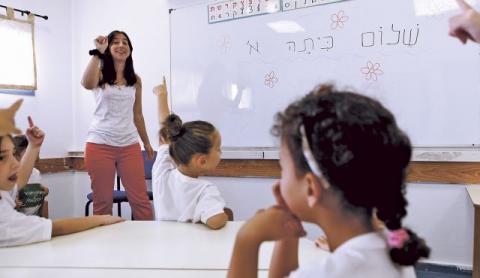Why do secular Israeli schools need rabbis?
Why, though, is a rabbi needed in a school that already has a Bible teacher, lessons about the Jewish holidays, and so on? Did the ministry check whether the rabbis are willing to teach co-ed classes? The director of the Haifa District in the Education Ministry did not reply to specific questions on the subject. What is known is that where tradition enters, the result is often extremism. A glaring example is the gender separation in state-religious schools, which is this year being budgeted by the Education Ministry after being financed by parents for years. Are we going to see separate classes for boys and girls in secular schools, too?
A spokeswoman for the Education Ministry’s Haifa District stated in response: “In the course of the annual district conference, ‘Youth Congress: Model Society 2048,’ it was decided that in the 5774 school year, the schools will carry out educational activity based on pluralism, getting to know our brothers, the struggle against racism and the inculcation of religious tolerance.
“As part of this program,” the response continues, “a series of educational activities centering around these themes will be carried out in the district during the year. The activities will include: Dialogue circles; batei midrash [a form of religious school]; and visits by teachers bearing the title of rabbi to state [i.e., secular] schools to mark Jewish holidays or other special days in the calendar, such as Tu Bishvat [Jewish Arbor Day] and the onset of a new month. The activity is by permission only, at the choice of the school principal.
“As for the activities of the teacher-rabbis, it should be noted that they are teachers and educators who also have a religious education, young people who play various musical instruments and who will transmit the material to the pupils in a way that is both experiential and interesting. The content of the lessons will be worked out together with the homeroom teachers and other teachers in the school, including teachers of literature, heritage and Jewish culture.”
Naomi Darom

